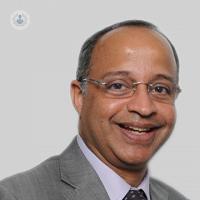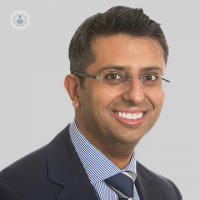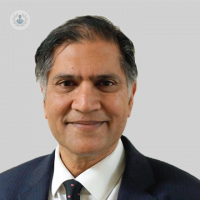What is hearing loss?
Hearing loss is a reduction in hearing sensitivity affecting one or both ears. It can be classified by type and degree.
There are three main types of hearing loss:
- Sensorineural hearing loss: caused by nerve damage to the inner ear. This is often permanent.
- Conductive hearing loss: affects the external or middle ear, making it difficult for sound to move from the outer ear to the eardrum and middle ear. Medicine or surgery can help improve this type of hearing loss.
- Mixed hearing loss: a combination of both of the above.

The different degrees of hearing loss are as follows:
- Mild hearing loss: it can be hard to understand speech in noisy environments.
- Moderate hearing loss: it can be difficult to understand speech without a hearing aid.
- Severe or profound hearing loss: a hearing aid or implant are required to hear.
Symptoms of hearing loss
Some of the most common symptoms are:
- Difficulty following conversations when two or more people are talking.
- Difficulty differentiating between high-pitched sounds.
- Deeper or more masculine voices are heard better.
- Sensation of being unsteady or of dizziness.
- Sensation of pressure in the ear.
Other symptoms may include:
- Loss of balance or dizziness
- Constant buzzing
What are the causes of hearing loss?
Causes of hearing loss include:
- Age: people aged over 65 years may experience hearing loss.
- Noise: prolonged exposure to loud noises may lead to hearing loss.
- Hereditary factors
- Infections: viruses and bacteria may harm the ear, in addition to untreated childhood otitis.
- Otosclerosis affects the mobility of bones of the middle ear, reducing their ability to transmit vibrations.
- Ototoxic agents: certain medications, alcohol and tobacco may harm the ear.
Can hearing loss be prevented?
Prevention is based on avoiding risk factors as much as possible. However, prevention is not possible for hearing loss of a genetic origin. In general, it is important to avoid exposure to high volumes and to use protective gear if you work in such an environment where noise is the norm.
What is the treatment?
Treatment depends on the degree of hearing loss. The conventional treatment for mild or moderate hearing loss is a hearing aid. In cases of profound hearing loss, a bone-anchored hearing aid may be implanted; this device transmits sound via the cranium to the affected ear.
11-13-2012 04-24-2024Hearing loss
Mr Richard Hewitt - Paediatric otolaryngology
Created on: 11-13-2012
Updated on: 04-24-2024
Edited by: Aoife Maguire
What is hearing loss?
Hearing loss is a reduction in hearing sensitivity affecting one or both ears. It can be classified by type and degree.
There are three main types of hearing loss:
- Sensorineural hearing loss: caused by nerve damage to the inner ear. This is often permanent.
- Conductive hearing loss: affects the external or middle ear, making it difficult for sound to move from the outer ear to the eardrum and middle ear. Medicine or surgery can help improve this type of hearing loss.
- Mixed hearing loss: a combination of both of the above.

The different degrees of hearing loss are as follows:
- Mild hearing loss: it can be hard to understand speech in noisy environments.
- Moderate hearing loss: it can be difficult to understand speech without a hearing aid.
- Severe or profound hearing loss: a hearing aid or implant are required to hear.
Symptoms of hearing loss
Some of the most common symptoms are:
- Difficulty following conversations when two or more people are talking.
- Difficulty differentiating between high-pitched sounds.
- Deeper or more masculine voices are heard better.
- Sensation of being unsteady or of dizziness.
- Sensation of pressure in the ear.
Other symptoms may include:
- Loss of balance or dizziness
- Constant buzzing
What are the causes of hearing loss?
Causes of hearing loss include:
- Age: people aged over 65 years may experience hearing loss.
- Noise: prolonged exposure to loud noises may lead to hearing loss.
- Hereditary factors
- Infections: viruses and bacteria may harm the ear, in addition to untreated childhood otitis.
- Otosclerosis affects the mobility of bones of the middle ear, reducing their ability to transmit vibrations.
- Ototoxic agents: certain medications, alcohol and tobacco may harm the ear.
Can hearing loss be prevented?
Prevention is based on avoiding risk factors as much as possible. However, prevention is not possible for hearing loss of a genetic origin. In general, it is important to avoid exposure to high volumes and to use protective gear if you work in such an environment where noise is the norm.
What is the treatment?
Treatment depends on the degree of hearing loss. The conventional treatment for mild or moderate hearing loss is a hearing aid. In cases of profound hearing loss, a bone-anchored hearing aid may be implanted; this device transmits sound via the cranium to the affected ear.


What to expect when you see an audiologist
By Mr Piotr Swiatek
2024-12-14
When you schedule an appointment with an audiologist, it's natural to have questions about what to expect during your visit. Here, leading senior clinical specialist audiologist and hearing aid consultant Mr Piotr Swiatek provides an overview of what typically occurs during a audiometry consultation with an audiologist to help alleviate any concerns you may have. See more


What causes balance problems?
By Miss Victoria Alexander
2024-12-14
The ability to balance depends on various factors. This includes on how well the brain, nerves, eyes, muscles and joints, function, as well as the vestibular system, which is the group of structures behind the ear drum. Leading consultant adult & paediatric ENT surgeon Miss Victoria Alexander looks at the most common causes of balance problems in connection to the vestibular system, their symptoms and treatment. See more
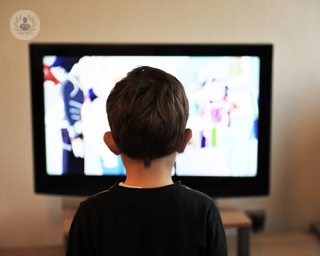

Glue ear – the FAQs answered
By Mr Sam Khemani
2024-12-14
Glue ear is a build-up of liquid in the middle ear. Glue ear is so common that 8 out of 10 children will experience it and it usually affects children under the age of seven. Mr Sam Khemani, an experienced ENT surgeon, answers some FAQs on this common childhood health problem. See more
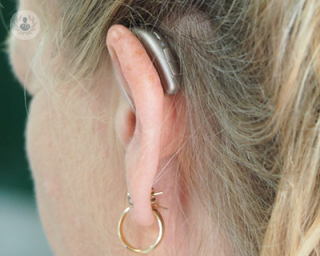

Worried about hearing loss? Your questions answered by a specialist
By Mr Guna Reddy-Kolanu
2024-12-14
Hearing loss, however slight, can affect a person's ability to socialise and work as well as their general wellbeing. Thanks to modern technological advances, however, patients suffering with hearing problems can benefit from significant improvements afforded by hearing aids, surgery or other treatment options. To discuss this, we invited leading consultant ENT surgeon Mr Guna Reddy-Kolanu, who answers commonly asked questions about hearing loss in this informative article. See more
Experts in Hearing loss
-
Mr Abhijeet Parikh
Otolaryngology / ENTExpert in:
- Hearing loss
- Otosclerosis
- Cholesteatoma
- Rhinitis
- Nasal polyps
- Voice disorders
-
Mr Michael Kuo
Otolaryngology / ENTExpert in:
- Paediatric ENT
- Hearing loss
- Voice disorders
- Blocked nose
- Sleep apnoea
- Neck lump
-
Mr Sam Khemani
Otolaryngology / ENTExpert in:
- Sinusitis
- Tonsillitis
- Paediatric ENT
- Glue ear
- Nasal polyps
- Hearing loss
-
Professor Manohar Bance
Otolaryngology / ENTExpert in:
- Cochlear Implants
- Hearing loss
- Vertigo
- Ménière's disease
- Middle ear surgery
- Otitis
-
Mr Stephen Wood
Otolaryngology / ENTExpert in:
- Paediatric ENT
- Tonsillectomy
- Hearing loss
- Sinusitis
- Voice disorders
- Sleep apnoea
- See all

The Portland Hospital - part of HCA Healthcare
The Portland Hospital - part of HCA Healthcare
205 - 209 Great Portland St. W1W 5AH
No existe teléfono en el centro.
By using the telephone number provided by TOP DOCTORS, you automatically agree to let us use your phone number for statistical and commercial purposes. For further information, read our Privacy Policy
Top Doctors

The Lister Hospital - part of HCA Healthcare
The Lister Hospital - part of HCA Healthcare
Chelsea Bridge Road, London
No existe teléfono en el centro.
By using the telephone number provided by TOP DOCTORS, you automatically agree to let us use your phone number for statistical and commercial purposes. For further information, read our Privacy Policy
Top Doctors

Audiology Plus LTD
Audiology Plus LTD
The Warren
No existe teléfono en el centro.
By using the telephone number provided by TOP DOCTORS, you automatically agree to let us use your phone number for statistical and commercial purposes. For further information, read our Privacy Policy
Top Doctors
-
The Portland Hospital - part of HCA Healthcare
205 - 209 Great Portland St. W1W 5AH, Central LondonExpert in:
- Neurological spinal surgery
- Orthopaedic spinal surgery
- Maternity care
- Pregnancy
- Scoliosis
- In vitro fertilisation (IVF)
-
The Lister Hospital - part of HCA Healthcare
Chelsea Bridge Road, London , Central LondonExpert in:
- Cancer
- Cardiology
- Orthopaedic surgery
- Pregnancy
- Physiotherapy
- Women’s health
-
- See all
- Most viewed diseases, medical tests, and treatments
- Visual impairment
- Diabetic retinopathy
- Retina
- Visual stress (Meares-Irlen syndrome)
- Presbyopia
- Nystagmus
- Myopia
- Hyperopia (farsightedness)
- Eye examination
- Demodex

